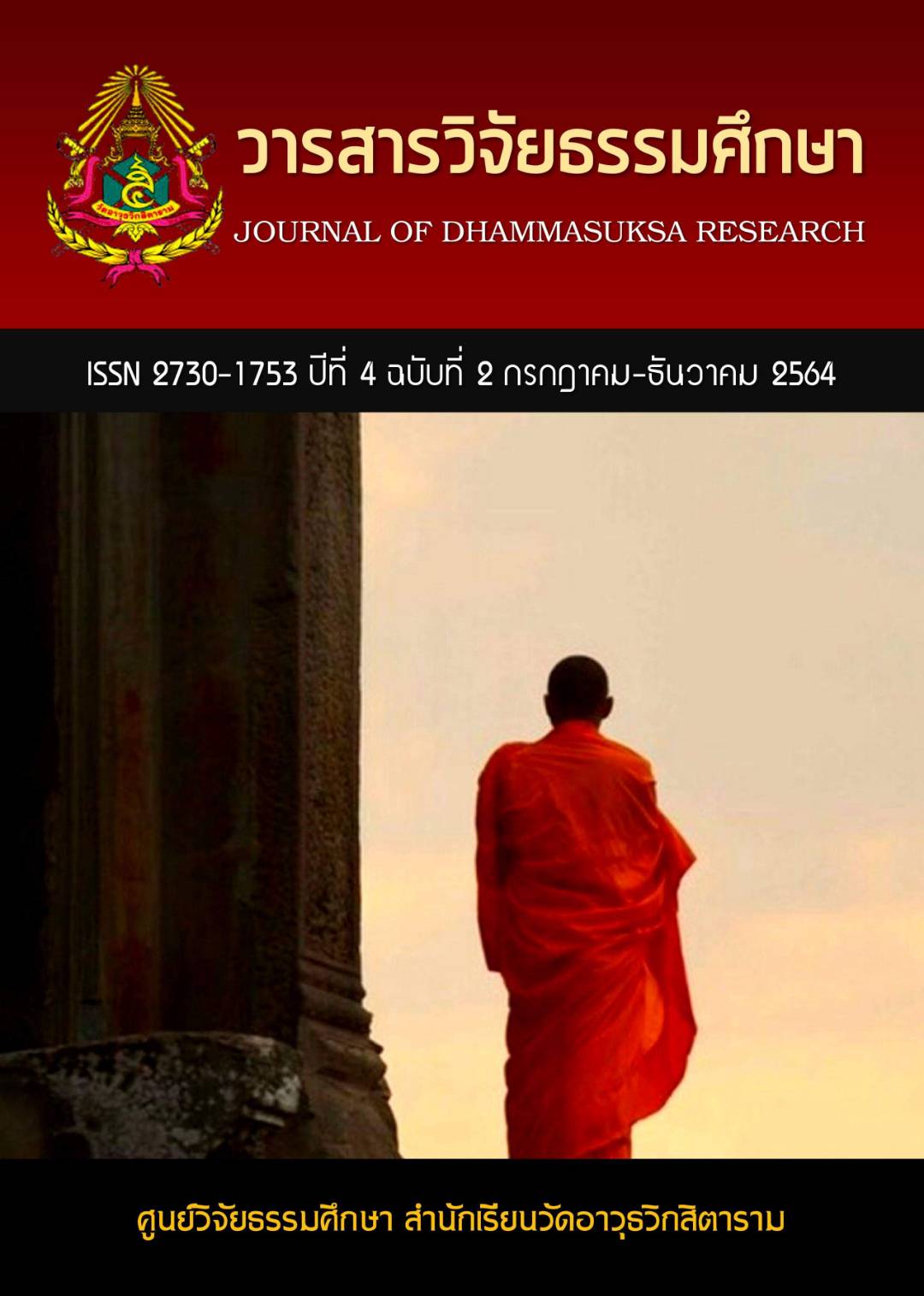แรงจูงใจของครูกับประสิทธิผลการดำเนินงานของโรงเรียนมัธยมศึกษาชั้นนำในประเทศไทย
คำสำคัญ:
แรงจูงใจของครู, ประสิทธิผลการดำเนินงาน, โรงเรียนมัธยมศึกษาชั้นนำบทคัดย่อ
การวิจัยครั้งนี้มีวัตถุประสงค์เพื่อศึกษา (1) เพื่อศึกษาระดับแรงจูงใจของครูมัธยมศึกษาในสถานศึกษาที่มีคะแนนสอบ O-net สูงสุด400 อันดับแรกของประเทศไทย (2) เพื่อศึกษาระดับประสิทธิผลของโรงเรียนมัธยมศึกษาที่มีคะแนนสอบ O-net สูงสุด 400 อันดับแรกของประเทศไทย(3) เพื่อศึกษาอิทธิพลของแรงจูงใจของครูมัธยมศึกษากับประสิทธิผลของโรงเรียนมัธยมศึกษาที่มีคะแนนสอบ O-net สูงสุด400 อันดับแรกของประเทศไทยและ (4) เพื่อศึกษาความสัมพันธ์ระหว่างแรงจูงใจของครูมัธยมศึกษากับคะแนน O-NET ของโรงเรียนมัธยมศึกษามีคะแนนสอบ O-net สูงสุด 400 อันดับแรกของประเทศไทย เป็นการวิจัยเชิงปริมาณ ผู้วิจัยเก็บรวบรวมข้อมูลจากกลุ่มตัวอย่างที่เป็นครูมัธยมศึกษาในโรงเรียนมัธยมศึกษาที่มีคะแนนการทดสอบการศึกษาระดับชาติขั้นพื้นฐาน O-net สูงสุด 400 อันดับแรก จำนวน 1,568 คน จาก 196 โรงเรียนใน 6 ภูมิภาค สถิติที่ใช้ในการวิเคราะห์ข้อมูล คือ การหาค่าความถี่ ค่าร้อยละ ค่าเฉลี่ย ค่าส่วนเบี่ยงเบนมาตรฐาน ค่าสหสัมพันธ์ และค่าถดถอยพหุคูณแบบหลายขั้นตอน
ผลการวิเคราะห์ข้อมูล พบว่า โรงเรียนที่มีคะแนนการทดสอบการศึกษาระดับชาติขั้นพื้นฐาน (O-net) (ค่าเฉลี่ยรวม 5 วิชา) สูงสุด คือ โรงเรียนมหิดลวิทยานุสรณ์ จังหวัดนครปฐม ส่วนมากเป็นโรงเรียนขนาดใหญ่ ครูส่วนมากเป็นเพศหญิงมีอายุ 41-50 ปี มีระดับการศึกษาปริญญาตรี มีรายได้เฉลี่ยต่อเดือน 20,001-25,000 บาทสังกัดกลุ่มสาระการเรียนรู้สังคมศึกษาและศาสนาและวัฒนธรรม แรงจูงใจของครูมัธยมศึกษาในภาพรวมอยู่ในระดับมากเรียงลำดับจากมากไปน้อย คือด้านปัจจัยจูงใจ และด้านปัจจัยค้ำจุน ประสิทธิผลของโรงเรียน ในภาพรวมอยู่ในระดับมาก เรียงลำดับจากมากไปน้อย คือ ด้านความสามารถในการผลิตนักเรียนที่มีผลสัมฤทธิ์ทางการเรียนสูง ด้านความสามารถในการแก้ปัญหาภายในโรงเรียน ด้านความสามารถในการปรับเปลี่ยนและพัฒนาโรงเรียนให้เข้ากับสิ่งแวดล้อมและลำดับสุดท้าย คือ ด้านความสามารถในการพัฒนานักเรียนให้มีทัศนคติทางบวก ตามลำดับ ปัจจัยจูงใจและปัจจัยค้ำจุน และแรงจูงใจในภาพรวมของครูมัธยมศึกษาส่งผลต่อประสิทธิผลของโรงเรียนมัธยมศึกษา ส่วนคะแนนการทดสอบการศึกษาระดับชาติขั้นพื้นฐานไม่ส่งผลต่อประสิทธิผลของโรงเรียนมัธยมศึกษา
เอกสารอ้างอิง
โกศล น้อยอ่าง. (2543). ความพึงพอใจของประชาชนในบริการของสถานีตำรวจภูธร อำเภอเมือง. นนทบุรี : มหาวิทยาลัยเกษตรศาสตร์.
จรัญ บุญประกอบ. (2542). ความพึงพอใจในการปฏิบัติงานของศึกษานิเทศก์ สังกัดสำนักงานการประถมศึกษา จังหวัดหนองคาย. มหาวิทยาลัยมหาสารคาม.
จิตติภา ขาวอ่อน. (2547). ความพึงพอใจในการปฏิบัติงานของข้าราชการสำนักงานปลัดกระทรวงกระทรวงศึกษาธิการ. มหาวิทยาลัยราชภัฏเทพสตรี.
ชฎายุ ภู่บังบอน. (2547). ความพึงพอใจในการปฏิบัติงานของข้าราชการกรมยุทธโยธาทหารบก. มหาวิทยาลัยราชภัฏจันทรเกษม.
ชูศรี วงศ์รัตนะ. (2553). เทคนิคการใช้สถิติเพื่อการวิจัย. นนทบุรี: ไทเนรมิตกิจ อินเตอร์ โปรเกรสซิฟ.
ณรงค์ ศรีเกรียงทอง. (2558). ปัจจัยแรงจูงใจที่มีผลต่อการสร้างประสิทธิผลในงานขายของพนักงานที่ปรึกษางานขาย (PC) และพนักงาน ที่ปรึกษาความงาม (BA) ของบริษัทโมเดิร์นคาสอินเตอร์เนชั่นเนลคอสเมติกส์ จำกัด. Vol 8 No 2 (2015) ฉบับภาษาไทย มนุษยศาสตร์ สังคมศาสตร์ และศิลปะ (พฤษภาคม - สิงหาคม 2558).
ธีราพร ธีรศิลปะ. (2551). ความพึงพอใจในคุณภาพชีวิตการทำงาน ของพนักงานบริษัท เอกศิลปะกรุงเทพ จํากัด. มหาวิทยาลัยราชภัฏพระนครศรีอยุธยา.
ธงชัย สันติวงษ์. (2550). องค์การและการบริหารงาน. (พิมพ์ครั้งที่11). กรุงเทพมหานคร: วัฒนาพานิช.
นิสดารภ์ เวชยานนท์ นิสดารก์ เวชยานนท์. (2548). มิติใหม่การบริหารทุนมนุษย์. กรุงเทพฯ: บริษัท กราฟิโก ซิสเต็มส์ จำกัด.
พระราชบัญญัติการศึกษาแห่งชาติ พ.ศ.2542 แก้ไขเพิ่มเติม (ฉบับที่ 2). (2545).
รุ่งนภา เลิศพัชรพงศ์. (2550). ประสิทธิผลการใช้คอมพิวเตอร์ในการบริหารโรงเรียนประถมศึกษากลุ่มกรุงธนใต้ กรุงเทพมหานคร. วิทยานิพนธ์ครุศาสตรมหาบัณฑิต (การบริหารการศึกษา) สถาบันราชภัฏสวนดุสิต.
รสรินทร์ แมบจันทึก. (2547). ความพึงพอใจในการปฏิบัติงานของพนักงานบริษัท มหาจักรไฟฟ้าสากล จำกัด. กรุงเทพฯ : มหาวิทยาลัยรามคำแหง.
ศิริพร พงศ์ศรีโรจน์. (2540). องค์การและการจัดการ. กรุงเทพฯ: เทคนิค.
ศิริวรรณ เสรีรัตน์และคณะอื่นๆ. (2552). การบริหารการตลาดยุคใหม่. กรุงเทพฯ: ธรรมสาร.
ศุภกิจ อัครเบญจพล. (2543). ความพึงพอใจต่อการปฏิบัติงานของเจ้าหน้าที่มหาวิทยาลัยรามคำแหง.วิทยานิพนธ์ศึกษาศาสตรมหาบัณฑิต มหาวิทยาลัยรามคำแหง.
สถาบันทดสอบทางการศึกษาแห่งชาติ (องค์การมหาชน) (สทศ.). (2561). บัญชีรายชื่อ โรงเรียนที่มีคะแนนสอบ O-NET (ค่าเฉลี่ยรวม 5 วิชา) สูงสุด 400 อันดับแรก ในปีการศึกษา 2559. สืบค้นเมื่อวันที่ 30 มิถุนายน 2561. จาก http://www.jangkhao.org/p/42881.
สถาบันส่งเสริมการสอนวิทยาศาสตร์และเทคโนโลยี. (2559). รายงานการประเมินด้านการศึกษาจากโครงการประเมินผลนักเรียนร่วมกับนานาชาติ หรือ PISA.
สิริอร วิชชาวุธ. (2544). แรงจูงใจกับการเรียนรู้ จิตวิทยาอุตสาหกรรมและองค์การเบื้องต้น. (พิมพ์ครั้งที่ 1). กรุงเทพมหานคร: สำนักพิมพ์มหาวิทยาธรรมศาสตร์.
สำนักงานคณะกรรมการข้าราชการครู. (2544). รายงานการศึกษาแนวทางการพัฒนาครูตามแนวพระราชดำริของพระบาทสมเด็จพระเจ้าอยู่หัว. กรุงเทพฯ : กระทรวงศึกษาธิการ.
สำนักงานเลขาธิการสภาการศึกษา. (2557). รายงานประจำปี 2557 สำนักงานเลขาธิการสภาการศึกษากับพันธกิจพัฒนาการศึกษาชาติ.
สำนักปลัดกระทรวงศึกษาธิการ. (2551). หลักสูตรการศึกษาขั้นพื้นฐานพุทธศักราช 2551. กรุงเทพฯ : โรงพิมพ์คุรุสภาลาดพร้าว.

ดาวน์โหลด
เผยแพร่แล้ว
รูปแบบการอ้างอิง
ฉบับ
ประเภทบทความ
สัญญาอนุญาต

อนุญาตภายใต้เงื่อนไข Creative Commons Attribution-NonCommercial-NoDerivatives 4.0 International License.


